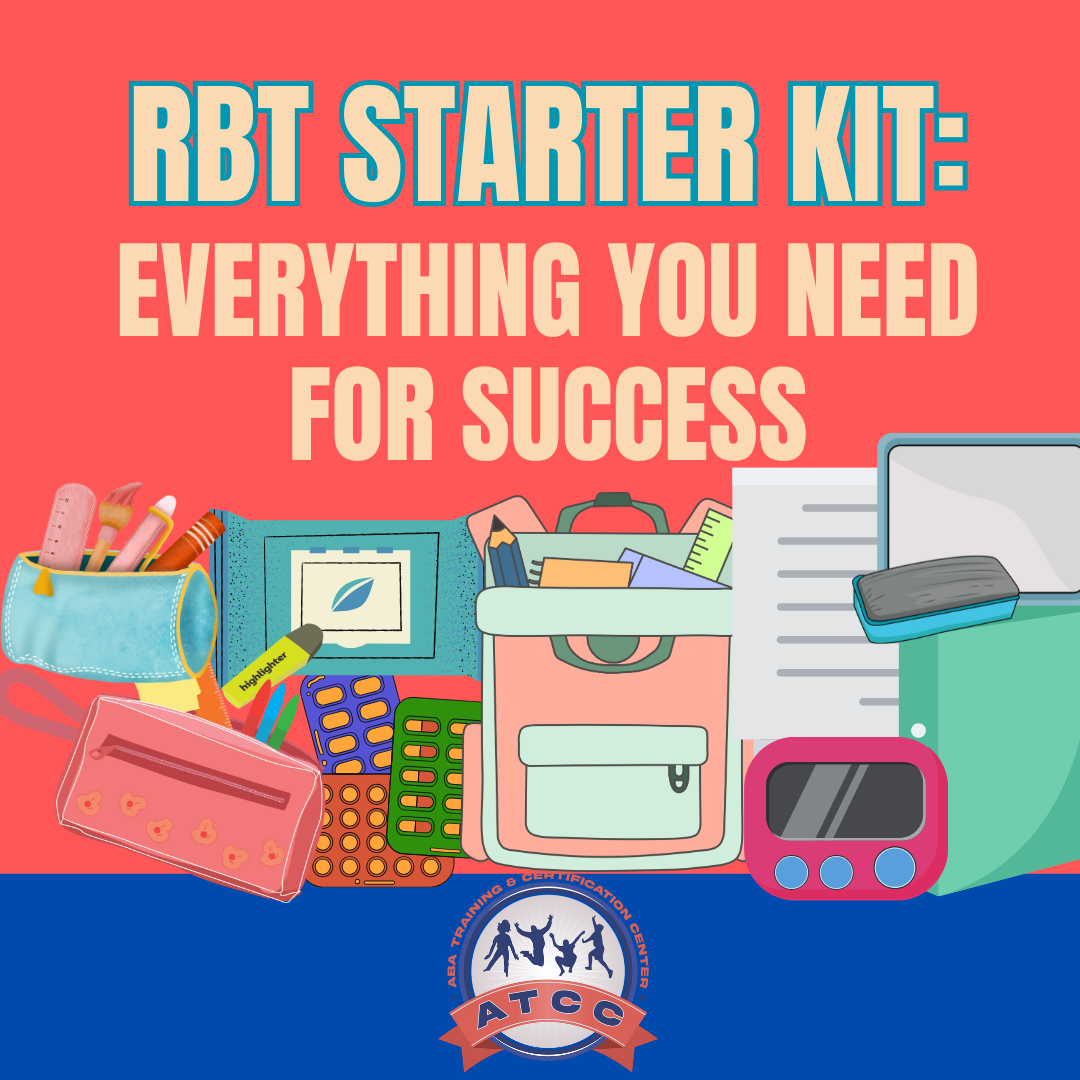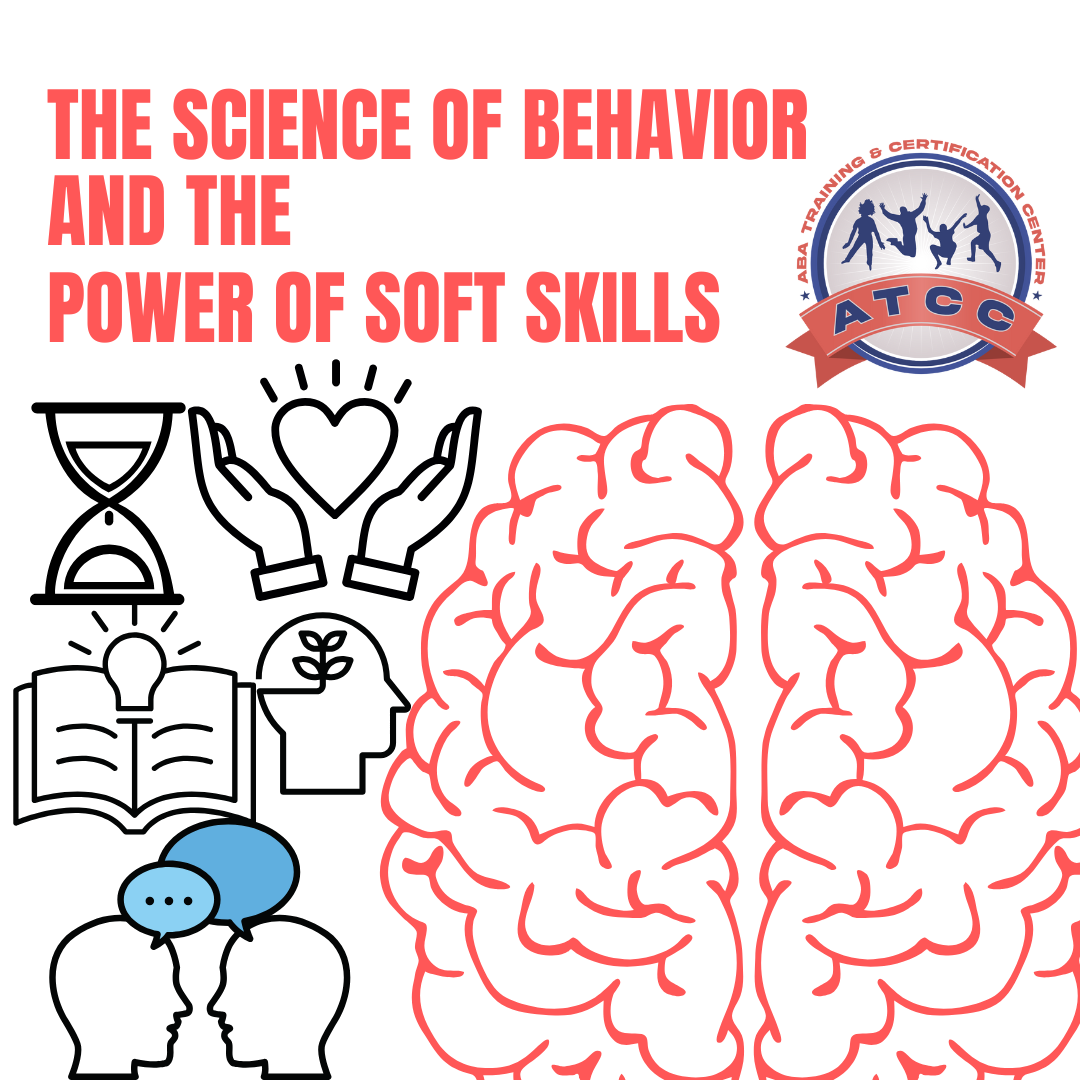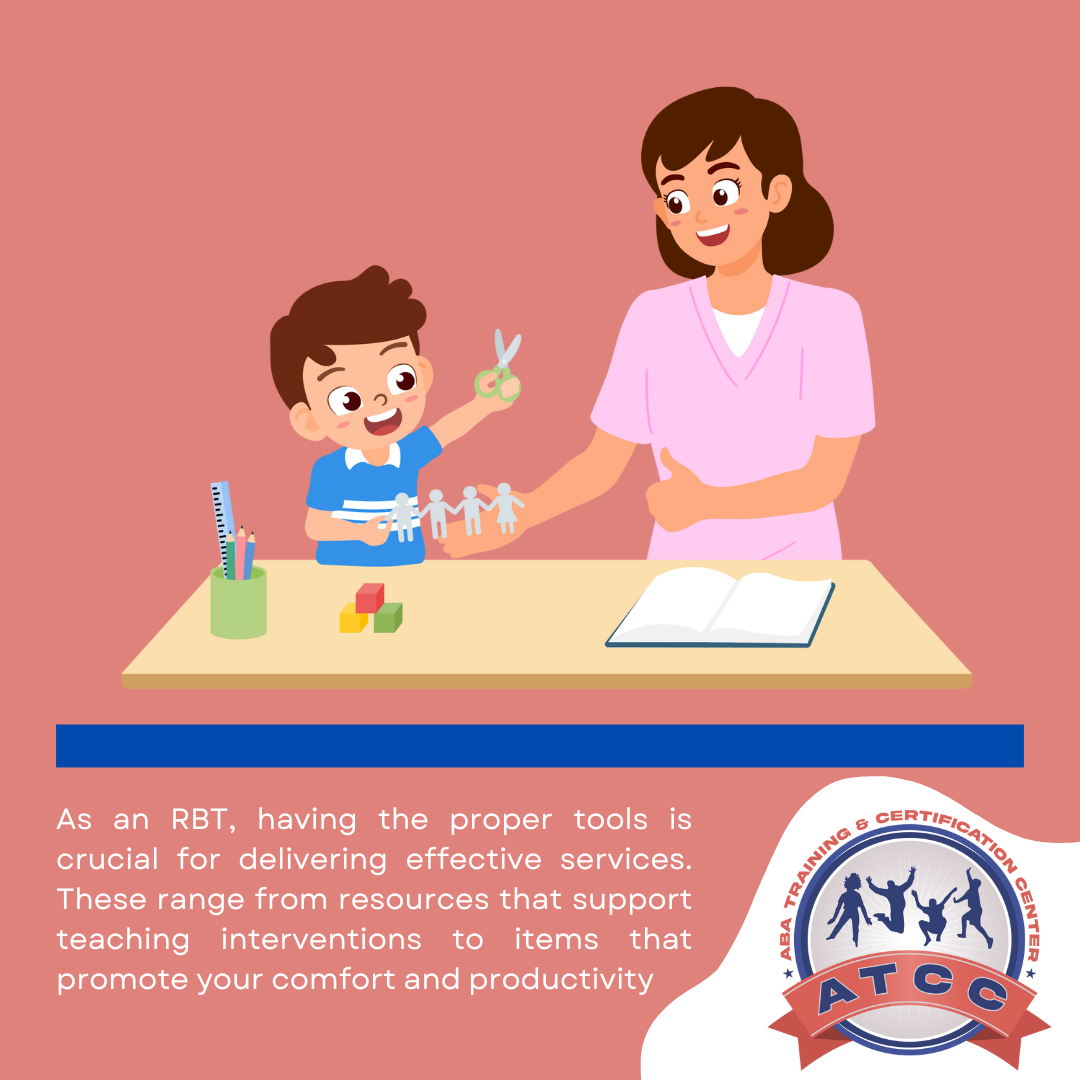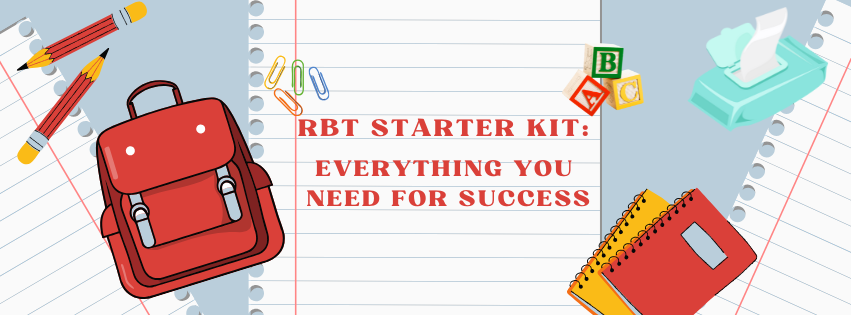Welcome to the world of Registered Behavior Technicians® (RBTs)!

If you’re just starting out in this field, you're about to embark on an exciting journey that combines science, real-world application, and personal growth. As an RBT®, you’ll be a critical part of helping individuals achieve their potential, and the road to success involves more than just technical knowledge. Let’s break down the essentials you’ll need to thrive in this dynamic role!
The Science of Behavior and the Power of Soft Skills

At the core of RBT® training is Applied Behavior Analysis (ABA), the science of human behavior. ABA principles such as reinforcement, prompting, and data collection form the backbone of your work, providing a solid foundation for understanding and influencing behavioral patterns. However, the ability to connect with your clients and handle real-world situations is just as important as knowing the theory.
Soft skills are what make great behavior technicians stand out. Let’s dive into some of these key traits:
Soft skills are what make great behavior technicians stand out. Let’s dive into some of these key traits:
- Patience: Working with individuals who take longer to learn new skills or have challenging behaviors requires patience. Remaining calm and positive, even when progress seems slow, is crucial for success.
- Empathy and Compassion: It’s essential to see the person, not just the diagnosis. Empathizing with your client’s challenges and celebrating their victories fosters trust and strengthens your working relationship.
- Communication Skills: You’ll often explain complex concepts to clients, families, and colleagues. Whether it’s writing session notes, collaborating with other professionals, or
talking to parents, being clear and effective in your communication is vital. - Ongoing Learning: ABA is an evolving field. The best RBT®s are lifelong learners, always seeking new techniques, strategies, and knowledge. Stay up-to-date with training, research, and professional development to enhance your skills and ensure the best possible outcomes for your clients.
A Day in a life of an Registered Behavior Technician® (RBT)
The life of an RBT® is varied and dynamic. Let’s take a look at what a typical day might include:
- Session Preparation: The day starts with reviewing the client’s behavior intervention plan and gathering necessary materials. It’s all about being prepared, like a chef getting their ingredients ready for a big meal.
- Direct Client Interaction: This is the heart of the job. You’ll implement various interventions and activities designed to address behavioral goals. Whether you’re using play-based techniques to teach social skills or working on daily living tasks, flexibility and adaptability are key.
- Documentation: Accurate documentation is a huge part of your role. You’ll record data on client behaviors, skill acquisition, and overall progress. This ensures that treatment decisions are data-driven and that you’re helping clients make tangible progress.
- Team Meetings and Case Discussions: Collaborating with other professionals helps to refine treatment strategies, troubleshoot challenges, and ensure a consistent approach to client care.
- Parent and Caregiver Training: Part of your job is helping parents and caregivers implement interventions at home. Through training and coaching, you’ll ensure a supportive and consistent environment for your client across all settings.
RBT® Teaching Tools & Self-Care

Teaching Tools:
- Clipboard and Pen: Always have a clipboard to jot down notes during sessions, keeping you organized and ready for anything.
- Note-taking Sheets: Record data on client progress, session goals, and behavioral occurrences.
- Toys (Playdough, Crayons): Useful for engaging children in therapy, providing sensory stimulation and encouraging creativity.
- Visual Cues: Help clients understand expectations or transitions, especially for non-verbal or autistic clients. Picture schedules or signs can aid in communication.
- Timer: Managing sessions and breaking tasks into smaller intervals can help structure the time effectively. A visual timer can also support clients who need a clear sense of time.
- Whiteboard and Markers: For quick demonstrations, instructions, or visual schedules during sessions.
Self-Care: - Hand Sanitizer, Wet Wipes, Tissues: Cleanliness is important, especially when working in close contact with clients.
- Comfortable Shoes: You’ll be on your feet a lot, so invest in shoes that provide support and comfort throughout the day.
- Fun Socks: A fun, lighthearted way to brighten up your day and connect with your clients, especially children.
- Extra Clothes: Accidents happen! Be prepared with a change of clothes for yourself or your client.
By investing in these tools, you'll be setting yourself up for success as a new RBT®. From making your sessions more effective to ensuring your own comfort, these items will help you navigate the daily challenges of this dynamic profession. Being an RBT® isn’t just about implementing strategies – it’s about making a difference in people’s lives. With the right blend of scientific knowledge, practical tools, and personal attributes like patience, empathy, and communication, you’ll be well on your way to success in this field. Always keep learning, stay flexible, and most importantly, celebrate the small victories along the way.
Welcome to the world of behavior technicians – where every day offers the chance to grow, learn, and make a positive impact!
Welcome to the world of behavior technicians – where every day offers the chance to grow, learn, and make a positive impact!
Guaranteed Security using one of the most advanced encrypted systems on the market.
The information in this page is being processed and encrypted securely using industry-leading encryption and fraud prevention tools.

